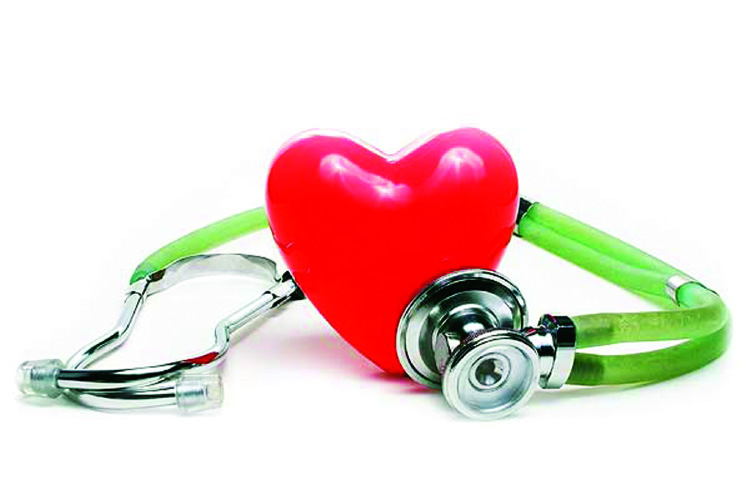Table of Contents
What is the burden of cardiovascular disease?
An estimated 17.1 million people die of cardiovascular diseases every year. 80% of the deaths occur in low- and middle-income countries.
What causes cardiovascular disease?
There are many risk factors that contribute to the development of cardiovascular disease. Some people are born with conditions that predispose them to heart disease and stroke, but most people who develop cardiovascular disease do so because of a combination of factors such as poor diet, lack of physical activity and smoking, to name just three. The more risk factors you expose yourself to, the higher the chance of developing cardiovascular disease. Many of the risk factors for cardiovascular disease cause problems because they lead to atherosclerosis.
Atherosclerosis is the narrowing and thickening of arteries. Atherosclerosis develops for years without causing symptoms. It can happen in any part of the body. Around the heart, it is known as coronary artery disease, in the legs it is known as peripheral arterial disease.
The narrowing and thickening of the arteries is due to the deposition of fatty material, cholesterol and other substances on the walls of blood vessels. The deposits are known as plaques. The rupture of a plaque can lead to stroke or a heart attack.
What is cholesterol?
Cholesterol is a waxy, fat-like substance used by the body to build cell walls. Your liver produces cholesterol and you absorb it from the animal fats you eat. Cholesterol is carried through the blood by particles called lipoproteins. There are two types: low-density lipoproteins (LDL) and high-density lipoproteins (HDL). The former carries the cholesterol around the body in the blood and the latter transports cholesterol out of the blood into the liver. When cholesterol is too high, or the levels of the two types are out of balance (dyslipidaemia), the cholesterol can clog the arteries affecting the flow of the blood.
What are triglycerides?
Triglycerides are fats found in the blood that are important for muscle energy. They travel through the blood in lipoproteins. As triglyceride levels rise, HDL cholesterol levels fall. Very high levels can lead to diabetes, pancreatitis, and chronic kidney disease and are associated with heart disease.
What is the connection between high blood pressure (hypertension) and heart disease?
Blood moving through your arteries pushes against the arterial walls; this force is measured as blood pressure.High blood pressure (hypertension) occurs when very small arteries (arterioles) tighten. Your heart has to work harder to pump blood through the smaller space and the pressure inside the vessels grows. The constant excess pressure on the artery walls weakens them making them more susceptible to atherosclerosis.
How are smoking and heart disease linked?
Smoking damages the lining of blood vessels, increases fatty deposits in the arteries, increases blood clotting, adversely affects blood lipid levels, and promotes coronary artery spasm. Nicotine accelerates the heart rate and raises blood pressure.
Does diet play a part in the development of heart disease?
Diet plays a significant role in protecting or predisposing people to heart disease. Diets high in animal fat, low in fresh vegetables and fruit, and high in alcohol have been shown to increase the risk of heart disease. Adopting a diet low in fat and salt has a protective effect over the long term. This means whole grains, fruits, and vegetables.
Aren’t women protected from heart disease because of estrogen?
Estrogen does help raise good HDL cholesterol, but once through the menopause as many women as men are affected by heart disease: but if a woman suffers from diabetes or has raised levels of triglycerides that cancels out the positive effect of estrogen.
How do the symptoms of heart attack differ between men and women?
The symptoms of heart attack in a man are intense chest pain, pain in the left arm or jaw and difficulty breathing. A woman may have some of the same symptoms, but her pain may be more diffuse, spreading to the shoulders, neck, arms, abdomen and even her back. A woman may experience pain more like indigestion. The pain may not be consistent. There may not be pain but unexplained anxiety, nausea, dizziness, palpitations and cold sweat. A woman’s heart attack may have been preceded by unexplained fatigue. Women also tend to have more severe first heart attacks that more frequently lead to death, compared to men.
Is heart disease hereditary?
Heart disease can run in some families. But even if you inherit the risks factors that predispose you to heart disease, such as high blood cholesterol, high blood pressure, diabetes, or being overweight, there are measures you can take that will help you avoid developing cardiovascular disease.
















